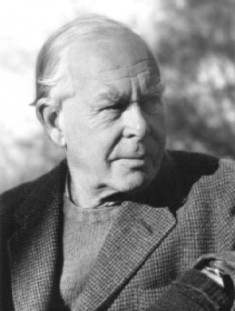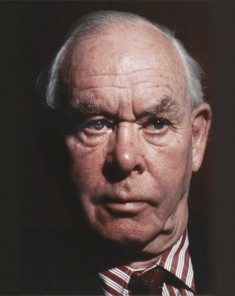| John Bowlby | |
|---|---|
 |
|
| Psychologist | |
| Born | Feb. 26, 1907 |
| Died | Sep. 2, 1990 |
| Nationality | British |
John Bowlby was a British psychoanalyst, psychologist, and psychiatrist who is renowned for his work on the impacts of separating children and infants from their parents or caregivers. Bowlby’s main thesis is that for any relationship to be successful in life, there has to be a bond between a child and his parent or primary caregiver.
Early Years
John Bowlby was born on February 26, 1907, in London. He was the fourth of six children and was raised by the nanny in a conventional British fashion of his social class. His father was a medical staff to the king.
Usually, Bowlby spent about one hour per day with his mother, although during the summer, she was available. She always believed that spoiling her kids was perilous, so that affection and attention was the contrary of what was needed with a child. At the age of four, his nanny, who was his primary caretaker, left the family. He later described this as his greatest loss.
Educational Years
At the age of seven, he was sent to a boarding school, which he later argued was harmful to his well-being. He did suffer from a lack of parental affection at school. It was this experience that led Bowlby to develop theories on child development. He did not believe that it was helpful for children to be separated from their family at a tender age, although he theorized that a removal from a dysfunctional ambiance could benefit an older child.
Bowlby attended Trinity College where he studied psychology and pre-clinical science. While at the school, he spent time working with delinquent kids. He then went to the University College Hospital to study medicine. He earned his degree at age 26.
While he was studying medicine at University College Hospital, he found time to enroll himself at the Institute of Psychoanalysis and graduated in 1937 as a qualified psychoanalyst. He also received training in adult psychiatry from the Maudsley Hospital.
Career Highlights
After becoming a certified psychoanalyst in 1937, Bowlby served in the Royal Army Medical Corps. He continued in the field as the Deputy Director of Tavistock Clinic. His early work with delinquent children led him to develop interest in the field of child development. He became interested in how separation from parents or caregivers affected children. After studying this subject for a while, he started to develop his theories on the significance of attachment on a child development.
The World Health Organization commissioned Bowlby to prepare a report on the psychological health of street children in Europe in 1949. The resulting work, entitled Maternal Care and Mental Health, was then published in 1951. After the publication, his attachment theory did not stop there. He continued to develop it.
Drawing on a number of subjects, including developmental psychology, cognitive science, and evolutionary biology, Bowlby created a theory which suggested that the initial attachments formed by kids with their parent or caregiver have a great effect that continues throughout their life.
Major Works and Achievements
The World Health Organization embraced his theories on maternal deprivation. These theories were also responsible for the changes in care of hospitalized kids in Europe. He stressed the significance of the maternal attachment to the psychological well-being of the child, and this resulted to the revised visitation rules and interventions for street and orphaned children.
 Since Bowlby strongly believed that much of the information related to separation of children from their caregivers was obsolete, he applied his own experience with orphan and delinquent children to explain his theory.
Since Bowlby strongly believed that much of the information related to separation of children from their caregivers was obsolete, he applied his own experience with orphan and delinquent children to explain his theory.
Bowlby’s work gained recognition in 1952 when he produced a movie entitled A Two-Year Old Goes to the Hospital. John’s work also influenced other famous psychologists such as Mary Ainsworth, who made great contributions to attachment theory. His work is considered to be an early form of evolutionary psychology.
His last book, entitled Charles Darwin: A New Life was a biography of Charles Darwin. This book addresses mysterious sickness that Charles Darwin experienced late in his life and speculated that it might have been psychosomatic.
Bowlby’s Personal Life
Bowlby had married Ursula Longstaff, the daughter of a renowned surgeon, on April 16, 1938, and they had four children, including Richard Bowlby, who later succeeded his uncle as the third Baronet Bowlby. John Bowlby died on September 2, 1990, at his home in Scotland.